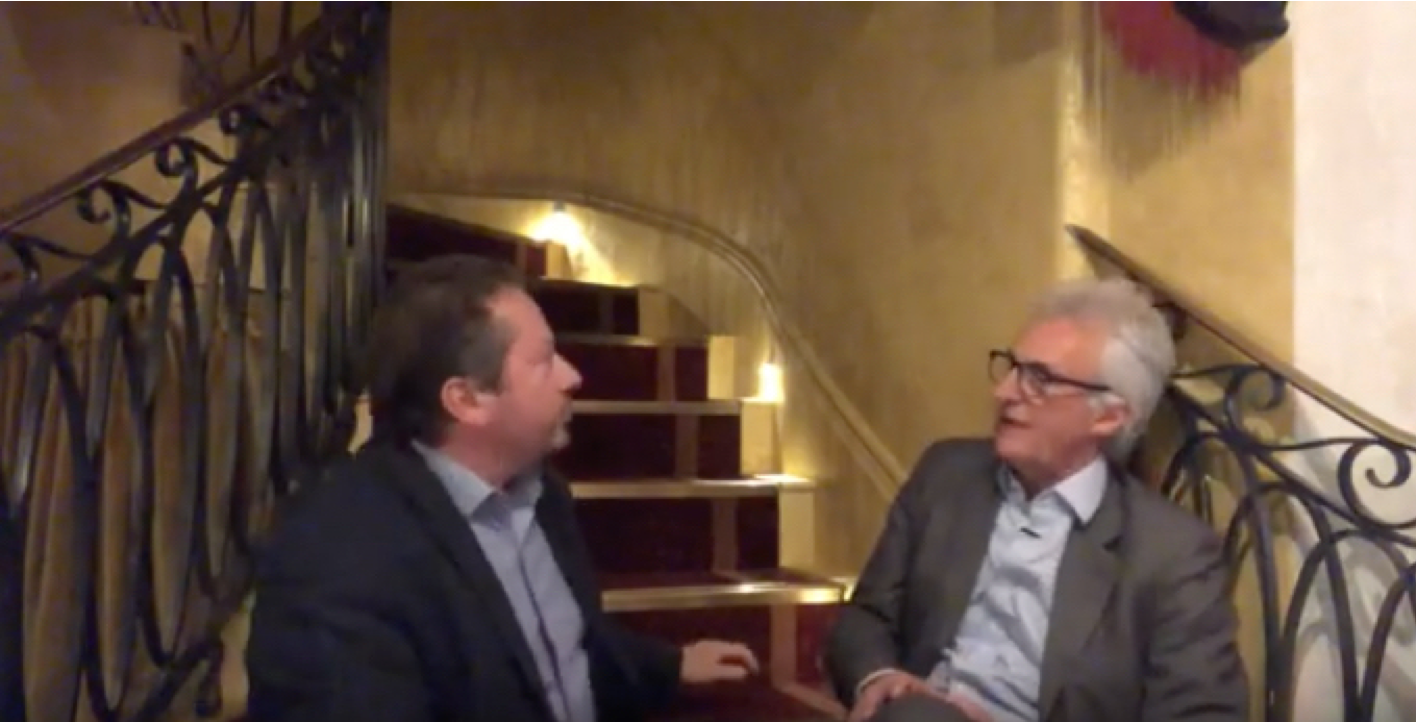Senior Advisor to Ecosphere+, Andrew Mitchell recently sat down with Anthony Hobley, International Climate Finance & Policy Leader to discuss all things biodiversity, natural climate and rainforests. Here is an overview of their discussion, but we invite you to watch the full interview here.
In the interview, Anthony asks if Andrew thinks that we are not treating biodiversity with the same level of urgency and importance as climate change during this zeitgeist moment in history. Andrew recounts that when he first started talking about rainforests the word ‘environment’ barely existed and sustainability was not a thing. From the 1970’s to now an extraordinary change has occurred. This has been proven by a monumental breakthrough in the summer of 2019 where the Governor of the Bank of England and the protesters lining the streets called for the same thing for one of the first times in history – action on climate change. Since then, many governments, including the UK government has declared a climate emergency, but that can’t distract us from the biodiversity emergency that goes hand in hand with it – a United Nations report warned that 1 million species are threatened by extinction. More recently, 571 plant species were declared extinct[1].
Beetles on balance sheets
Andrew makes an important point; we need the big finance people and companies in the middle to wake up! But the risk of using the term ‘biodiversity emergency’ is that most CFOs don’t understand why you need a “beetle on the balance sheet”. Therefore, it is vital that for this change to be successful we must find the right language that everyone can understand. For example, Andrew thinks there will be a big trend change from fossil fuels to one that focuses on our food system, as food production has an inevitable impact on nature. Biodiversity supports the food we eat and the products we use every day. Such as the raw materials for many western medicines and cosmetics and providing habitats that allow for the pollination of bees.
Andrew makes the case that we should use the term ‘natural capital’, to appropriately value the natural world. This encompasses all of the above and it is a term that money people can understand rather than biodiversity. It also ties in with the fact that Andrew points out, “ecology underpins our economies”. Without natural capital there simply is no economy. Climate change is an accelerator of biodiversity loss and the issues with our natural capital. Furthermore, as pointed out by Andrew, some of the natural capital challenges will come up faster than climate. A collapse in soil fertility can happen quickly and with huge consequences; while sea level rise, for example, will come, but not for a long time. It is for this reason that we are seeing a reaction to agricultural practices; people want a new model that gives back to nature.
What have Bloomberg terminals got to do with saving the environment?
Andrew, who started his career as a zoologist working in the field, has come to the realisation that you can’t save orangutans by hugging them – you’ve got to deal with the finance and money flows.
The biggest changes, therefore, will come from working on Bloomberg terminals as a way of developing and reframing financial data, so that it includes information about the over-exploitation of natural capital. Currently around 70% of investment decisions are turning a blind eye to their impacts on nature. It is vital to create a platform that makes valuing natural capital simple.
We have the TCFD as a way of forcing disclosure on climate risk, but there needs to be an equivalent for natural capital. The launch of the Encore tool from the Natural Capital Finance Alliance which explores natural capital risk exposure and opportunity by collating huge amounts of environmental data into 21 ecosystem services across 167 sectors, starts connecting natural capital to business a in a simpler way. GIST has also created impact 360 which puts a financial price on natural capital. It is not an option anymore for finance and business to say they don’t know how their activities are connected to nature and use this as an excuse for a lack of action. The tools are in place, but the incentives are not. We need regulations and a framework in place to enforce them. There is a need to make doing the right thing for natural capital a positive investment decision. Some of this will come from emerging business opportunities, which is something Andrew touches on in the interview, such as companies like Beyond Meat and vibrant green bonds for nature and landscapes. There is now a potential for an ROI if you invest in natural capital!
Later in the interview Anthony and Andrew discuss REDD+ and carbon markets. Andrew reminds us that they haven’t always been trusted, as people are selling something you can’t see. However, carbon credits generated from protecting forests are a relatively new thing and far more tangible. It is essentially using carbon as a currency to save rainforests. You get not only the climate benefits of sucking carbon out the air, but all the co-benefits (SDGs) from saving these vital ecosystems such as biodiversity, saving indigenous people and female empowerment.
This is just a snapshot of the interview, please click here to watch the full video.
If you want to find out how you or your company can start making a more positive impact on valuing natural capital, please contact us.
[1]https://phys.org/news/2019-08-extinct-faster-historical-norm.html
